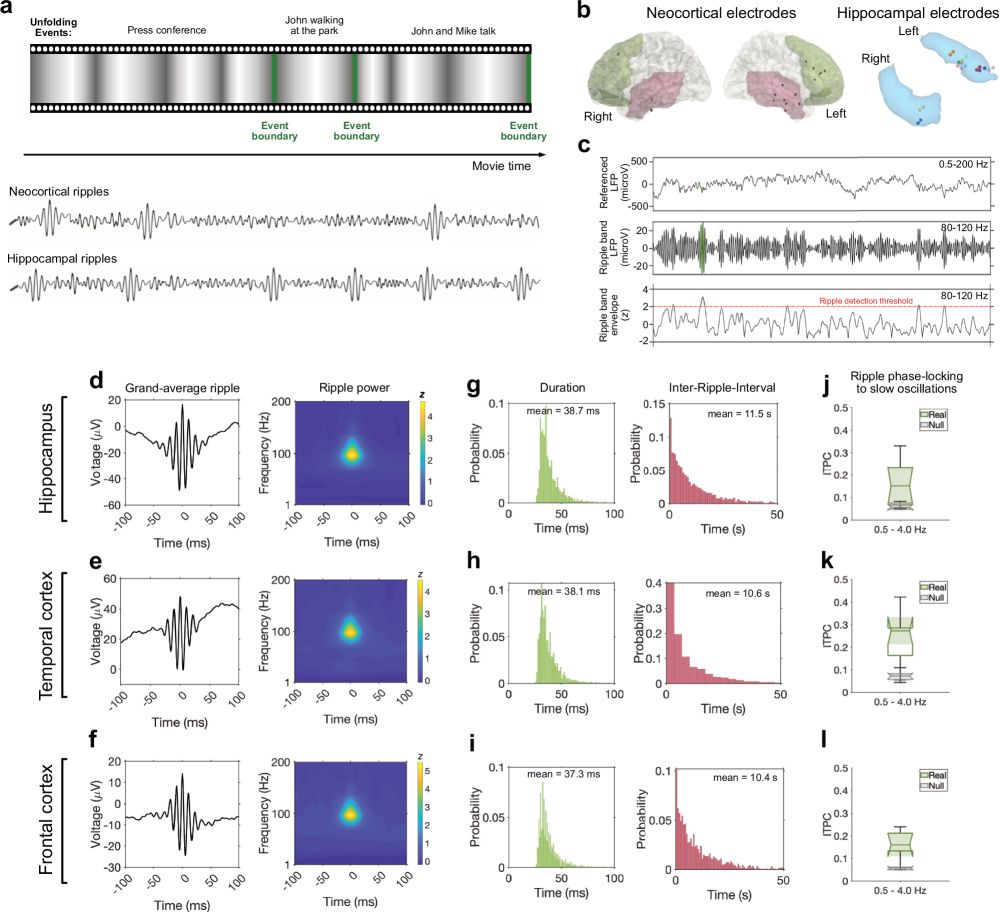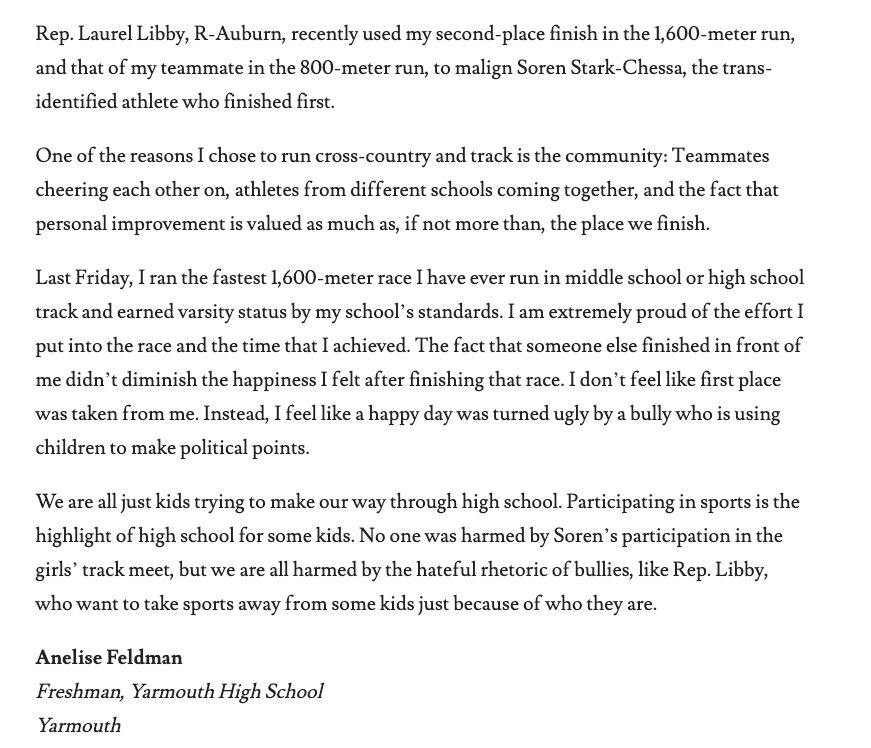www.nature.com/articles/s41...
With @lukaskunz.bsky.social, Joshua Jacobs, and our colleagues from the University of Freiburg

www.nature.com/articles/s41...
With @lukaskunz.bsky.social, Joshua Jacobs, and our colleagues from the University of Freiburg
Excited to share our latest work on alpha/beta activity, eye movements, and memory.
Across 4 experiments combining scalp EEG/iEEG with eye tracking, we show that alpha/beta activity directly reflects eye movements, and only indirectly relates to memory.
👇 Highlights (1/7):
Excited to share our latest work on alpha/beta activity, eye movements, and memory.
Across 4 experiments combining scalp EEG/iEEG with eye tracking, we show that alpha/beta activity directly reflects eye movements, and only indirectly relates to memory.
👇 Highlights (1/7):
www.rug.nl/about-ug/wor...
www.rug.nl/about-ug/wor...
We investigated how hippocampal and cortical ripples support memory during movie watching. We found that:
🎬 Hippocampal ripples mark event boundaries
🧩 Cortical ripples predict later recall
Ripples may help transform real-life experiences into lasting memories!
rdcu.be/eui9l

We investigated how hippocampal and cortical ripples support memory during movie watching. We found that:
🎬 Hippocampal ripples mark event boundaries
🧩 Cortical ripples predict later recall
Ripples may help transform real-life experiences into lasting memories!
rdcu.be/eui9l
1/ Can we accurately detect sequential replay in humans using Temporally Delayed Linear Modelling (#TDLM)? In our recent study, we could not find any replay and decided to dig deeper by running a hybrid simulation with surprising results. Link to preprint & details below 👇
1/ Can we accurately detect sequential replay in humans using Temporally Delayed Linear Modelling (#TDLM)? In our recent study, we could not find any replay and decided to dig deeper by running a hybrid simulation with surprising results. Link to preprint & details below 👇
Can mice estimate the distance to an odour source?
New work led by Cristina Marin and colleagues, jointly supervised by @andreas-t-schaefer.bsky.social at the @crick.ac.uk and myself.
Spoiler alert: Yes, they can!
Read the paper here: bit.ly/43A9tF9
Short 🧵 below
Can mice estimate the distance to an odour source?
New work led by Cristina Marin and colleagues, jointly supervised by @andreas-t-schaefer.bsky.social at the @crick.ac.uk and myself.
Spoiler alert: Yes, they can!
Read the paper here: bit.ly/43A9tF9
Short 🧵 below

Together with @tschreiner.bsky.social, we investigated how respiration coordinates signature neural expressions of successful remembering during memory retrieval. 🫁🧠
🧵(1/8)
Together with @tschreiner.bsky.social, we investigated how respiration coordinates signature neural expressions of successful remembering during memory retrieval. 🫁🧠
🧵(1/8)
You can find full details and apply via the link below:
www.jobs.ac.uk/job/DMN515/r...
Please feel free to share this with anyone who might be interested!

1/ How does deep sleep reshape our memories? Our new study shows that slow-wave sleep (SWS) reorganises episodic memory networks, shifting recall from the parietal cortex to the anterior temporal lobe (ATL). With Polina Perzich and @bstaresina.bsky.social . A thread below👇
1/ How does deep sleep reshape our memories? Our new study shows that slow-wave sleep (SWS) reorganises episodic memory networks, shifting recall from the parietal cortex to the anterior temporal lobe (ATL). With Polina Perzich and @bstaresina.bsky.social . A thread below👇

www.biorxiv.org/content/10.1...

www.biorxiv.org/content/10.1...
onlinelibrary.wiley.com/doi/full/10....
onlinelibrary.wiley.com/doi/full/10....
www.sciencedirect.com/science/arti...

www.sciencedirect.com/science/arti...
Preprint: www.biorxiv.org/content/10.1...
Task for easy re-use: github.com/BonnSpatialM...
Code: github.com/BonnSpatialM...

Preprint: www.biorxiv.org/content/10.1...
Task for easy re-use: github.com/BonnSpatialM...
Code: github.com/BonnSpatialM...

www.cell.com/current-biol...

www.cell.com/current-biol...

